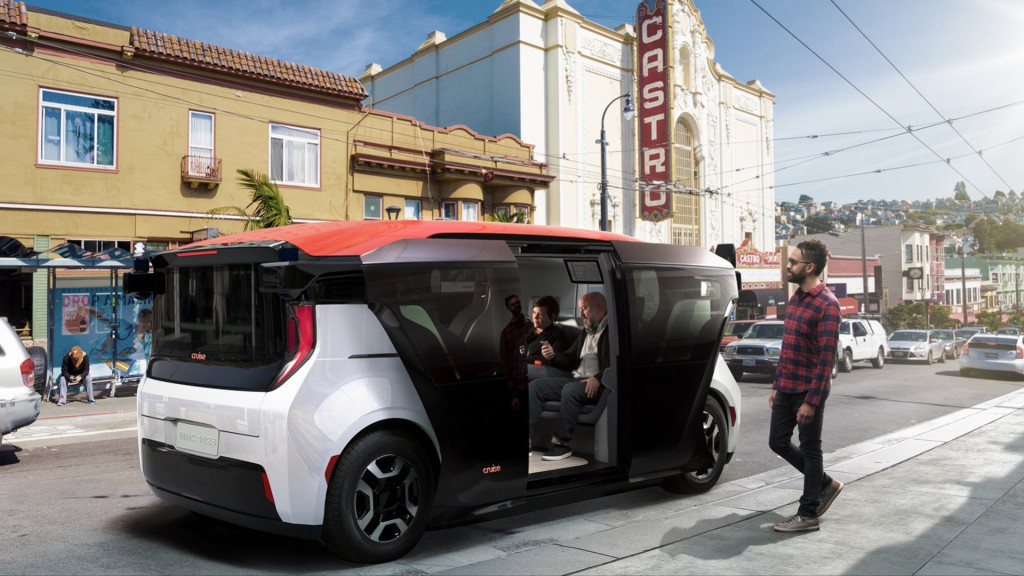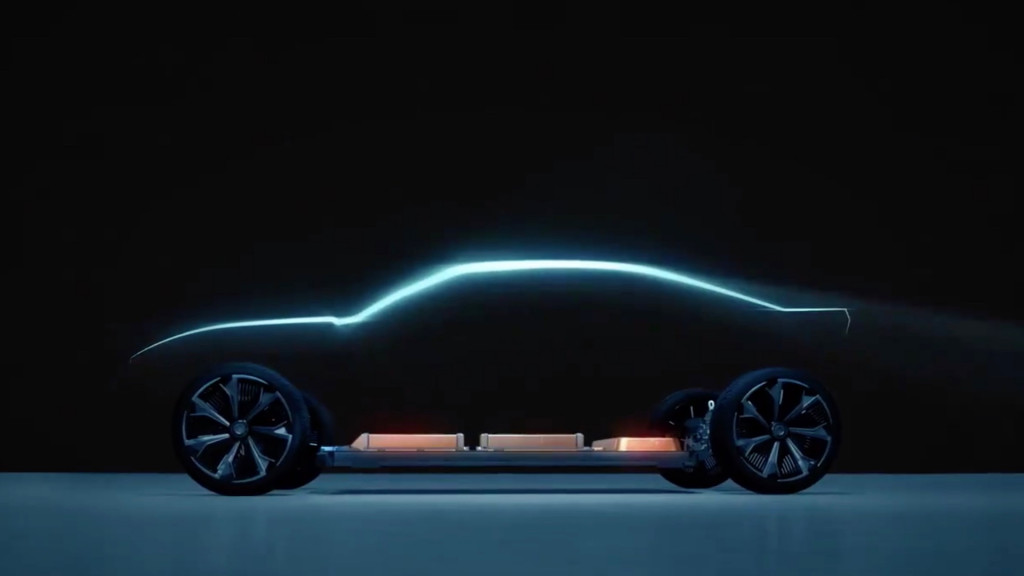Fully electric commercial vehicles, like the electric van for delivery fleets that was first reported earlier this month, are “a huge opportunity” for GM, CEO Mary Barra said in a Bloomberg interview Monday.
Barra nodded when asked about the project—reportedly code-named BV1—and added plenty of supporting reasons why the company is considering commercial electric vehicles a part of its future.
“As companies look at what their carbon footprint is and what environmental pledges that they’re going to make, if they have any part of their business that’s delivery or has a fleet need, having commercial vehicles that are all-electric to meet those needs are going to be very important,” Barra said to Bloomberg’s David Rubenstein. “And we think we can also provide a good value equation with the cost of ownership.”

Cruise Origin driverless vehicle
It marks the first on-the-record acknowledgement of the project from a GM executive. Such a commercial program might help the company reach the economies of scale possible under its BEV3 architecture and the Ultium propulsion toolkit, which includes a modular battery system and exclusive cells co-developed with LG Chem.
GM has made its vision of an “all-electric future”—and its pivot toward an emphasis on EVs and autonomous technology—a primary part of its messaging over the past several years. And company executives have been emphasizing that the coronavirus-induced economic slowdown of recent months hasn’t changed that.
According to Ken Morris, GM’s VP for autonomous and electric vehicle programs, speaking to Green Car Reports last month, the company has fast-tracked the program, ushering one vehicle ahead on its timeline and adding “a lot of things that were not even talked about at EV Day.”
The van project was one of those things not yet revealed, and it might have been the vehicle that was pulled ahead in its timeline. Although Barra said nothing of that, the Reuters exclusive that revealed the project said that the vehicle is expected in the U.S. before the end of 2021. That would beat the all-electric Ford Transit to market—and compete with vans from Rivian and others.

Amazon electric van
One soft spot in GM’s strategy is that it has been very reluctant to talk about real numbers and things like expected sales targets. Even Ford, which has shown a similar reluctance over time to disclose targets, noted last month that it’s preparing to keep up with a global market that could be one-third EVs by 2030.
A transition of decades—to make the fleet mostly electric
The transition to EVs will take “a period of years and decades,” Barra explained, considering the 250 million cars in the U.S. fleet and the idea of transitioning all of them. “When you look at different use cases, also affordability—and that’s why we’re working so hard to make sure we’re in a leadership position with battery technology—so EVs are affordable for everyone...it will happen in, I think, a little bit longer period but it will happen.”
“Since we’re a full-line manufacturer with both value brands and luxury brands, we need to make sure we’re providing options for the entire marketplace,” Barra said.

Possible electric Chevrolet Camaro in GM Ultium teaser video
GM has often mentioned its planned $20 billion investment toward EVs from 2020 through 2025, and its aim to sell a million EVs a year in 2025—with 20 distinct EV models heading to market among its global brands by 2023.
With the stronger push to electric, and the recalibration of this year, where does that actually leave GM in terms of volume and market share by the end of the decade, and when does it see the “all-electric future” arriving, with internal combustion engines retired from its offerings? Those are questions Green Car Reports has relayed to the company and CEO through several different channels, and we’ll provide that reply in an update soon.
